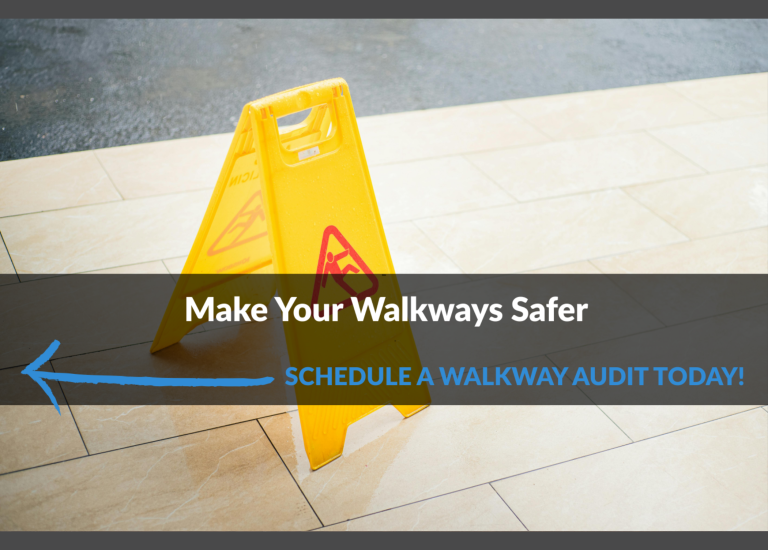"Rob is very professional and keeps on top of all of the jobs that I hire him and his guy to complete. He runs a very professional business and I look forward to working with Rob for many jobs to come." … [Read More...]

Rob McNealy, Walkway Auditor and OSHA “Qualified Individual”
Frequently Asked Questions About Walkway Audits
What is a walkway safety audit?
A walkway safety audit is a proactive, data-driven evaluation of walking surfaces designed to identify and correct slip, trip, and fall hazards before accidents occur. Certified auditors measure coefficient of friction (COF) using NFSI-approved methods (B101.1, B101.3, B101.4) and inspect factors such as floor materials, contaminants, transitions, lighting, and maintenance procedures. The result is a detailed, defensible report that helps property owners and managers improve safety and demonstrate compliance.
How often should walkway audits or COF testing be performed?
For most commercial and public facilities, annual or semi-annual audits are recommended, or anytime surfaces are replaced, coated, or refinished. High-traffic and high-risk environments—such as hospitals, grocery stores, senior housing, and hospitality properties—benefit from quarterly or seasonal COF testing. Routine audits help establish a baseline safety record and document due diligence in the event of a claim.
How do walkway audits help prevent falls among older adults?
For seniors and aging-in-place homeowners, walkway audits identify hazards such as:
- Slippery flooring materials or polishes
- Unsecured mats and rugs
- Poor transitions between flooring types
- Uneven thresholds, steps, or ramps
- Low lighting or glare issues
Correcting these risks dramatically reduces the likelihood of a debilitating fall, which is one of the leading causes of injury and loss of independence in adults over 60.
What standards govern walkway safety audits?
Flooristics performs audits according to recognized industry standards, including:
- ANSI/NFSI B101.1, B101.3, and B101.4 – Slip resistance and COF testing methods
- ASTM and ANSI standards – Surface and material performance
- ICC/ADA accessibility codes – Walking surface design and compliance
- Manufacturer maintenance guidelines – For proper cleaning, coatings, and finishes
These standards ensure results are accurate, consistent, and legally defensible.
Who should schedule a walkway audit?
Walkway audits are ideal for:
- Business owners and property managers – Prevent liability and lower insurance risk
- Facility and safety directors – Maintain OSHA and ADA compliance
- Attorneys and insurers – Support due diligence or risk-management programs
- Homeowners and caregivers – Improve safety for elderly residents and reduce household fall hazards
What does a walkway audit report include?
Each audit report from Flooristics provides:
- On-site COF test results for wet and dry conditions
- Photos and diagrams of hazardous areas
- Applicable standard and code references
- Corrective recommendations for improving traction and safety performance
The report can serve as part of your safety documentation, insurance file, or risk-management program.


Recent Comments